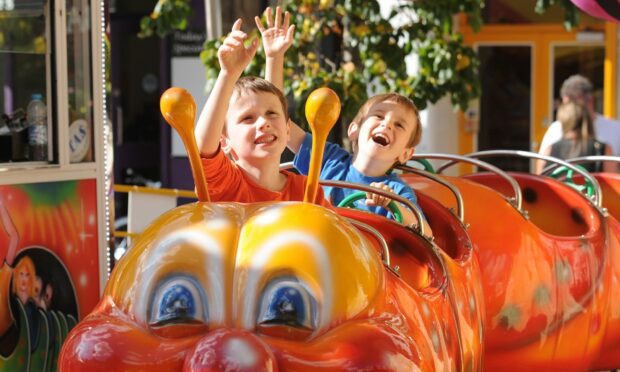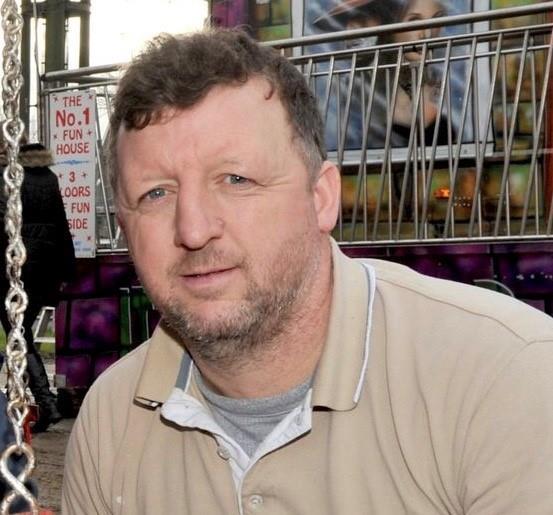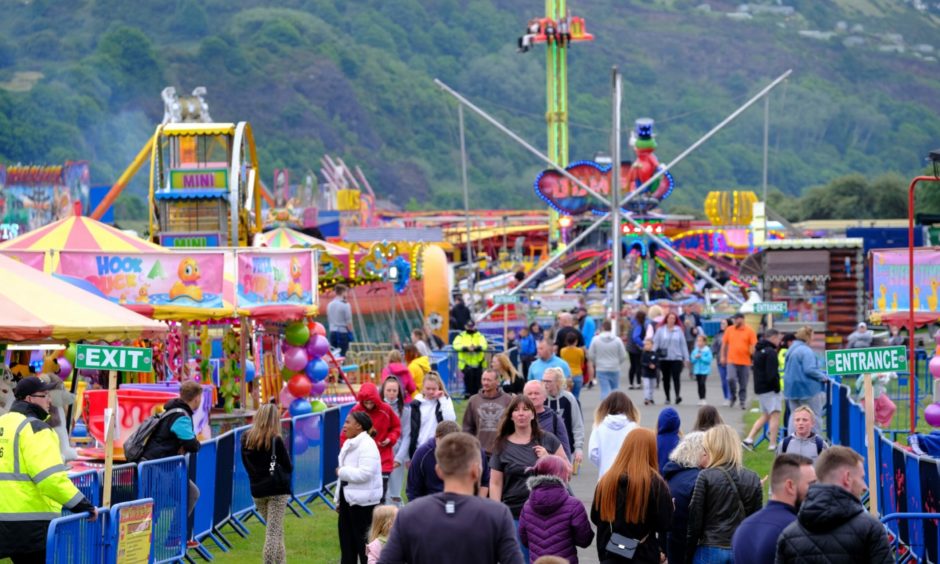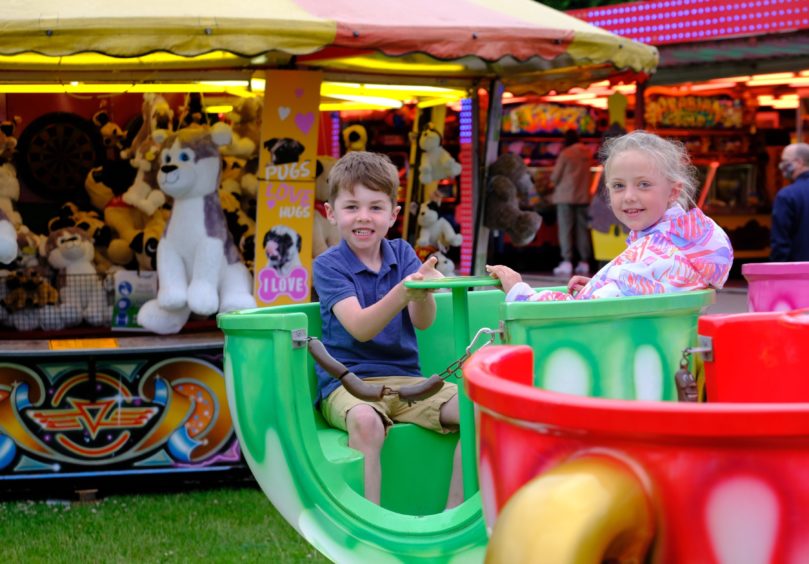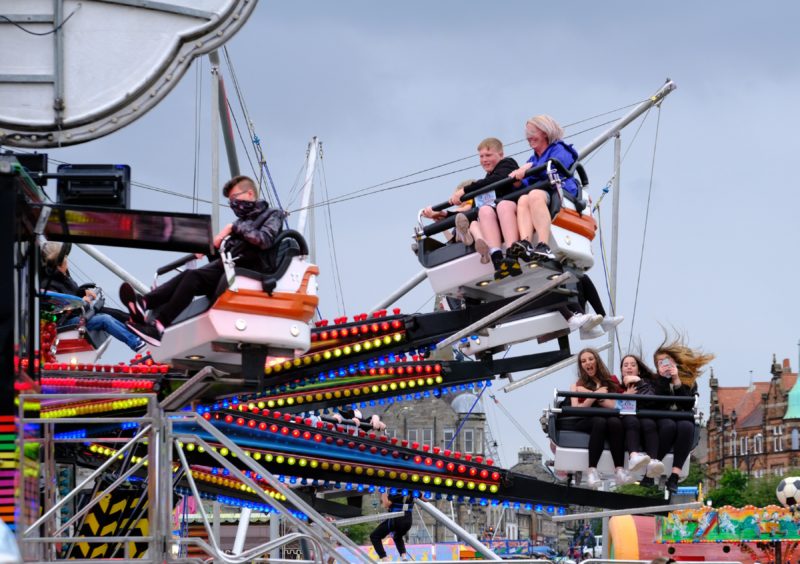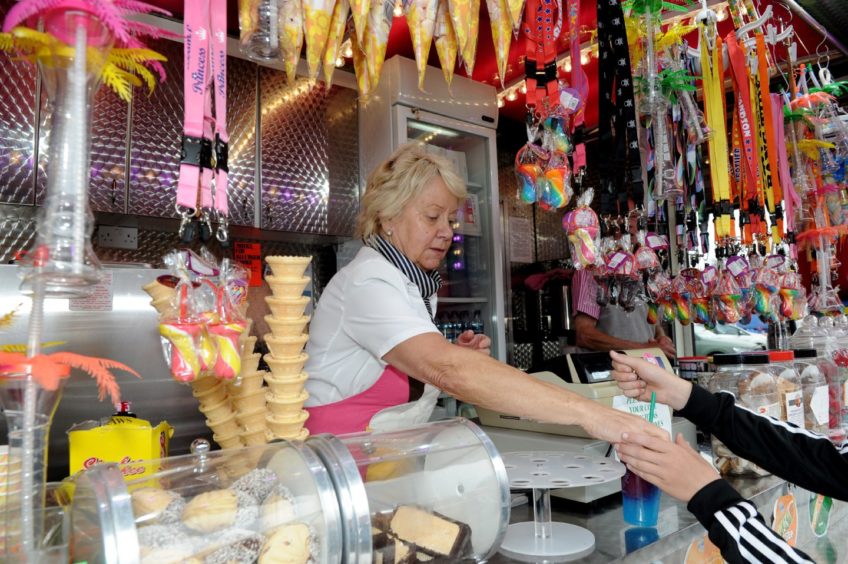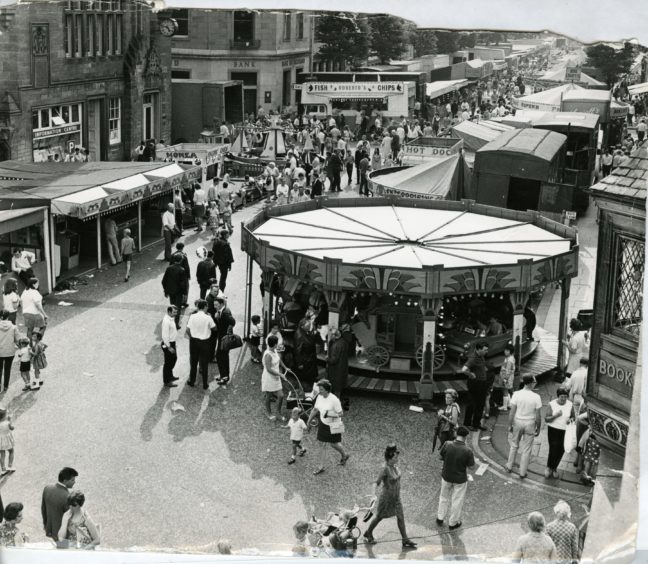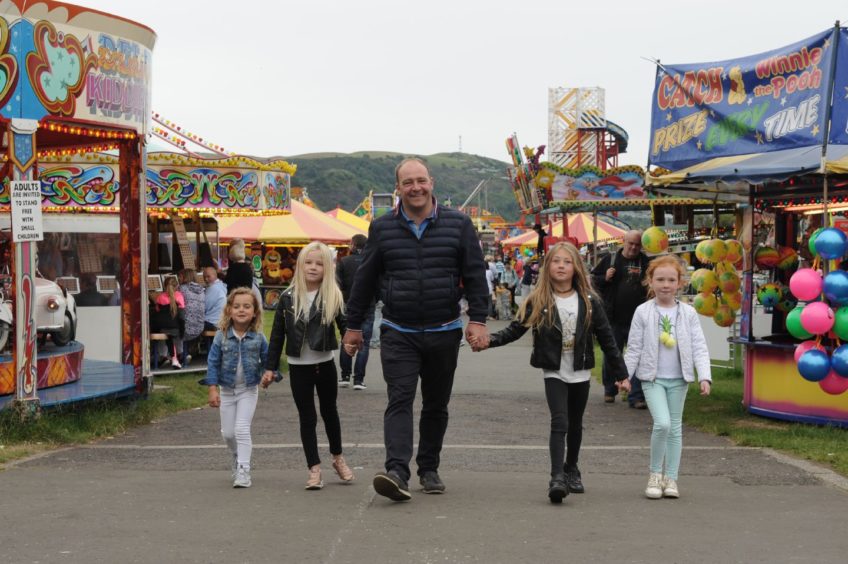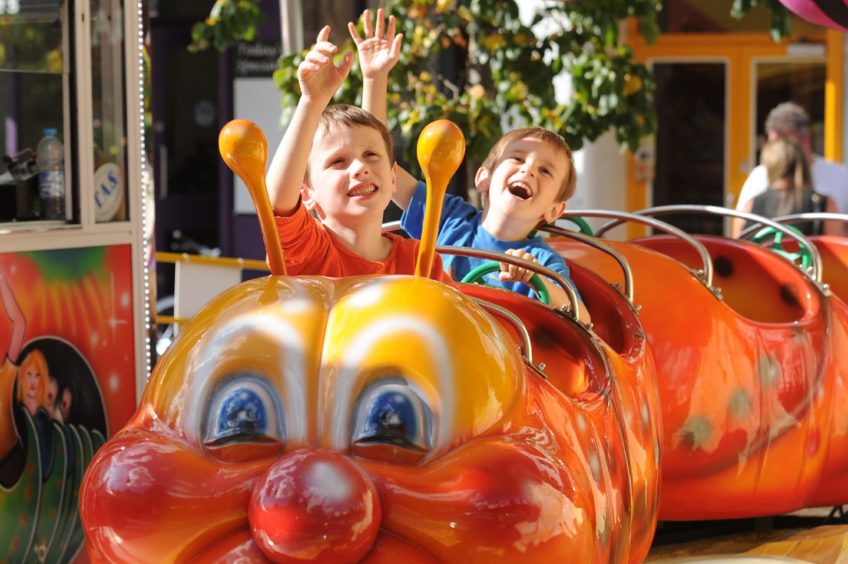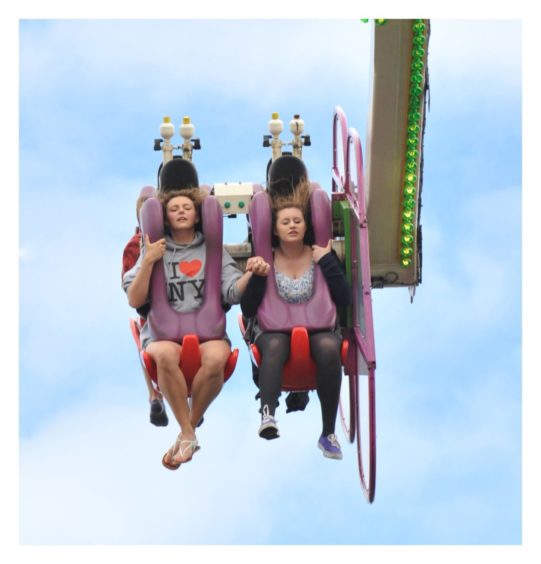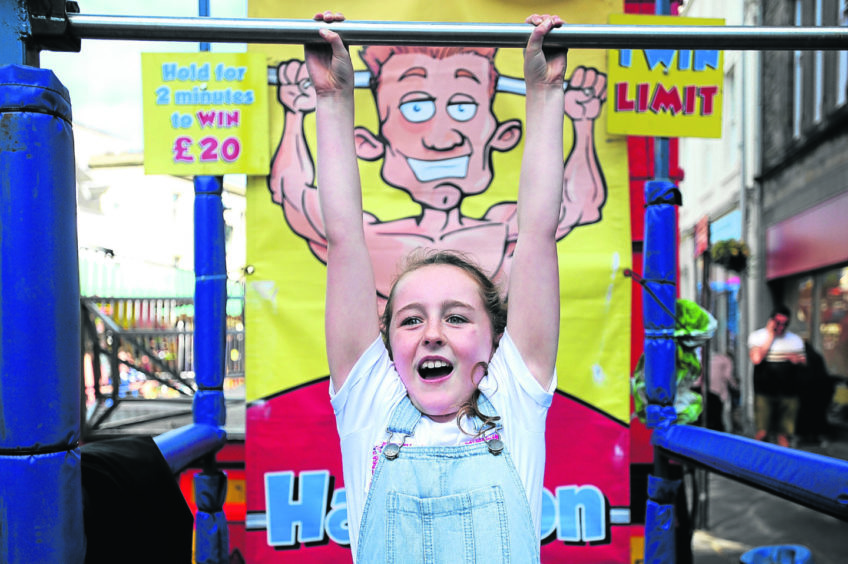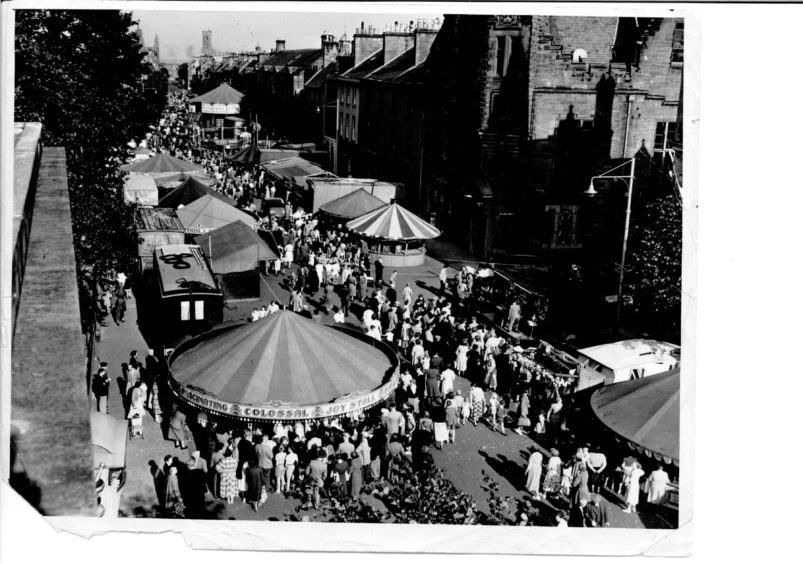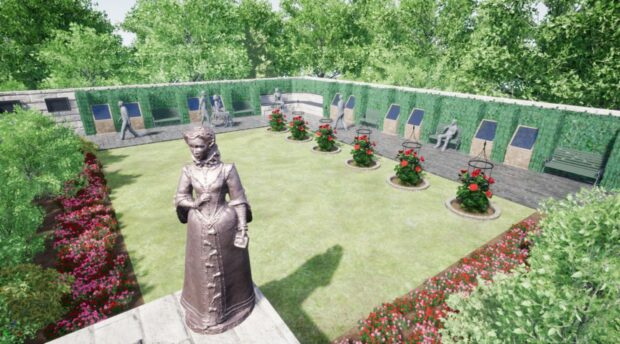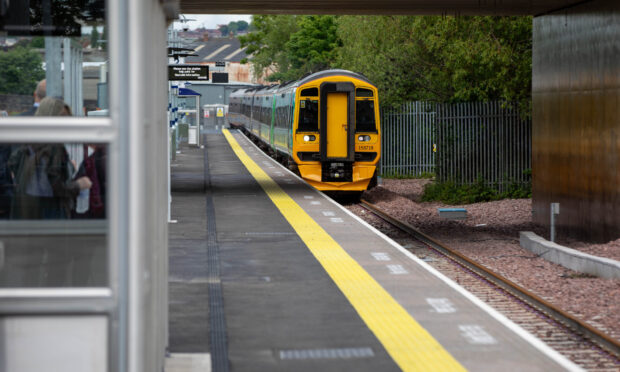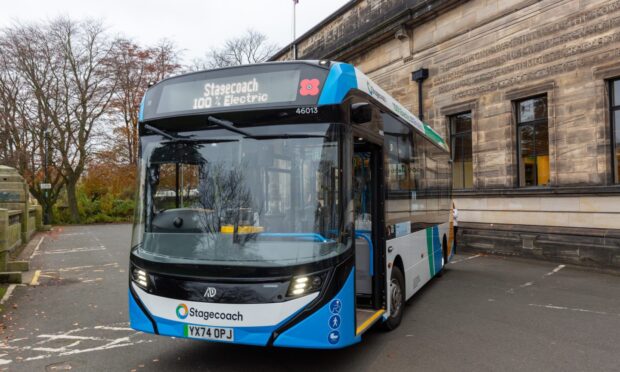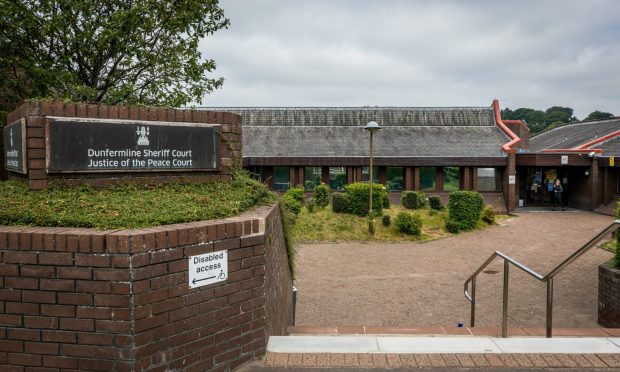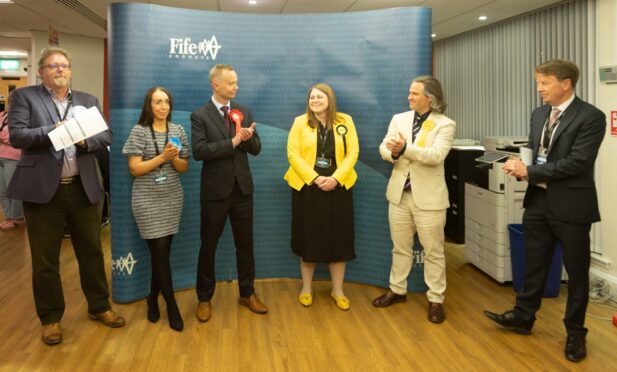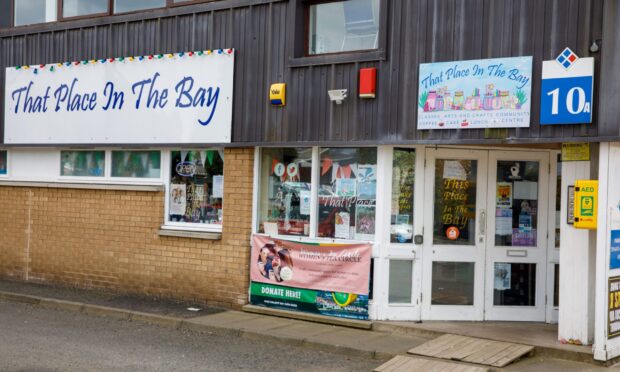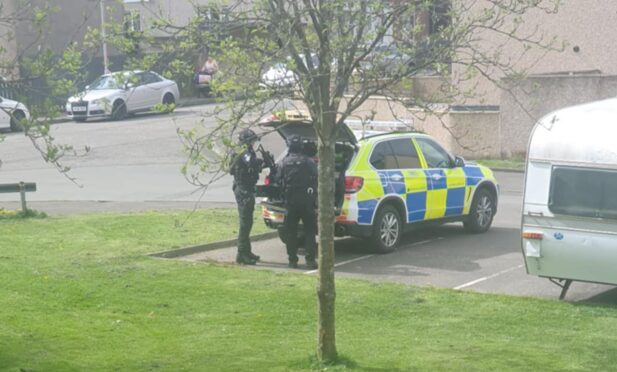While the easing of Covid-19 restrictions by the Scottish Government has allowed the Lammas Market to go ahead in St Andrews a week later than planned, Michael Alexander hears about the toll the pandemic has taken on some showmen and their businesses.
Standing next to his bungee trampoline in a busy Cumbernauld shopping centre, Alan Newsome is enjoying a steady afternoon as young children queue with their parents to “fly high and land soft” using his play equipment.
The 54-year-old showman says running the business can be “frustrating”.
If the weather is nice the shopping centre stays quiet, and if the weather’s terrible, everyone stays at home.
“What we need is a happy medium,” he adds. “Money out of half a cake is better than no cake!”
Generations of showmen
Like thousands of other self-employed UK showmen, Alan and his family spend much of their year on the road, living out of a touring caravan and setting up shop in fairs where their parents, grandparents and great grandparents before them traditionally held pitches.
Descended from generations of showmen, and married to a showman’s daughter, the Glasgow-based father of three daughters, who themselves want to follow the family tradition, also operates a number of inflatables, children’s rides and a couple of catering units. He also helps organise and operate funfairs across the country.
However, with the Covid-19 restrictions forcing funfairs to close between March 2020 and July 6 this year – and with uncertainty prevailing for others such as the Lammas in St Andrews until recently – he says the impact of the pandemic on business has taken its toll.
“Before July 6 this year, I last operated at a place called Stonehouse outside Larkhall in the third week going into the fourth week of March 2020,” explains Mr Newsome, who was recently elected to the 15-strong committee of the Showmen’s Guild of Scotland, which has more than 300 members in its Scottish section.
“The week before I got an email from the guy at the leisure centre, at South Lanarkshire Council, who informed us that due to the pandemic, due to coronavirus, they were going to have to cancel all bookings until they got some sort of guidance on what’s going on.
“When lockdown happened we assumed it would last two or three months and that by the end of last summer it would pick up again.
“But obviously it went on and on and on and we started to get really worried about it.
“We got a wee glimmer of hope last summer when down in England our counterparts were allowed to operate again – for a while anyway. But we weren’t and a lot of people in the Scottish section didn’t think this was fair and got angry.
“No doors opened for us, so some of us had to turn our hand to other things just to pay the bills.”
Fife fairs cancelled
The pandemic meant that in 2020, Europe’s longest street fair – the Links Market in Kirkcaldy – didn’t go ahead.
Neither did Scotland’s oldest fair – the traditional Lammas Market in St Andrews last August or the 13-week Burntisland fair, with roots dating back to the 1500s, which is one of the most important on the showmen’s calendar.
While the Links was again cancelled this year, the gradual relaxation of Covid-19 rules means that the previously cancelled 2021 Burntisland Fair did eventually go ahead under tight Covid rules from the start of July.
As revealed by The Courier, it was also confirmed the other week that the St Andrews Lammas Market would run from August 13 to 17, a week later than planned.
Mr Newsome said there had been a “lot of difficulties” getting fairgrounds up and running against a shifting backdrop of uncertainty.
He knows of several showmen who’ve decided not to carry on amid financial uncertainty and the stress of not being able to pay their bills.
“There’s ones that’s decided not to carry on in the business, to sell what they’ve got, sell their equipment and try and go down another route,” he says.
“I know quite a few that’s tried to do that already. Some of them have become cleaners and joiners and electricians just to try and get some jobs to pay their loans and their bills and survive.
“Some might have gone into another wee business if they got the chance. Probably sold their equipment for a cheaper price than they should have.
“Some have just had enough. They’re fed up knocking their head against a brick wall.”
Overcoming hurdles
However, it had been a “big thing” to get Burntisland up and running again this year with a Covid-19 plan in place.
He was also very pleased that St Andrews, where had a couple of plots booked, was going ahead, albeit slightly smaller than usual.
He said the Showmen’s Guild chairman and committee had been “outstanding” – proving that they could run a fair safely and manageable within the then guidelines.
With a public thoroughfare running down the middle of the Burntisland site that had to be kept open, the guild came up with an event plan which included a traffic plan and around 20 stewards managing different controlled funfair zones.
“Some of the tenants at Burntisland have been going their whole lives and for generations,” he says.
“They have been very thankful that we’ve done it because without the showmen’s guild’s help, we’d never have got Burntisland up and running.
The Lammas Market in St Andrews, however, had potentially posed different challenges.
While Burntisland fair was effectively a fenced off area, the Lammas was situated on main streets in the middle of the town where restrictions, without relaxed Covid measures, would be much more difficult to enforce.
While the Lammas was traditionally held in the days leading up to the second Tuesday in August, the decision had been taken this year to await the Scottish Government’s anticipated relaxation of Covid-19 rules on August 9 and to delay the fair by a week to August 13-17.
This was a “make or break” announcement for the Lammas which went in its favour.
Family ties
Showmen are not considered an ethnic group as Romany gypsies or Irish Travellers are.
Most frequently they identify as itinerant businessmen and women.
But all agree that it’s a tradition steeped in history and family ties.
Mr Newsome said these had been particularly challenging times for the older showmen who’d been coming their whole lives.
These included the likes of Brian Strand, 76, who is at least a fourth generation travelling showman and who bought his bolt-action ball-bearing gun shooting gallery and football prize stall 40 years ago.
“I’ve known him all my days. He’s been going to Burntisland since he was born and his father and mother before that. Technically he’s the oldest tenant.
“It’s been a hard one because he’s been going for 70 odd years,” says Mr Newsome.
He also felt for younger members like his 16, 19 and 24-year-old daughters who’d experienced the “hassle and the stress” of Covid-19 and “didn’t know what was going on”.
It’s the close family ties amongst the showmen that had seen most of them through.
“Burntisland has never been off and neither has Kirkcaldy Links Market. Even in the First and Second World War, stuff still went ahead. It’s crazy when you think,” he says.
However, Mr Newsome said the Showmen’s Guild continued to campaign on wider issues as well, because Scotland, he said, is the only country in Europe where showmen have to apply for a public entertainment licence before they can get a fair up and running. England, Ireland and Wales, by contrast, don’t.
Licence reform
He says it’s “not a fair system” because local authorities can charge different rates.
Edinburgh, for example, can charge anywhere between £800 and £3000 for a licence and Glasgow £600.
Fife Council, by contrast, which probably has more fairs than anywhere, had been “really good with the fairground people”, he admitted.
“For the biggest street fair in Europe – the Kirkcaldy Links Market,” he says, “I think it’s sitting at £105 now for a licence. So you can imagine nearly a mile long street fair with probably at least 400 or 500 attractions. Fairs also bring a lot of money into towns and villages.
“But what we’d like to see is a fairer Scotland-wide system with a one year all year round price of £100 or £150 so we know what we’re doing.
“To put that in laymen’s terms it should be the same across Scotland.”
Team effort
Fife Council’s emergency resilience manager Shona Robertson chaired the multi-agency meetings in the run up to this year’s Burntisland Fair.
Similar discussions launched to get the Lammas Fair under way following the Scottish Government’s announcement on August 3 that restrictions would ease.
She commented: “This has been a real team effort.
“Over the last few months, we worked really closely with the Showmen’s Guild, who organise and run the fair, to make sure this year’s event was as safe as possible for everyone coming along.
“Working to public health legislation and guidance, together we made sure the organisers fully considered and planned for a safe event.
“Measures including physical distancing, capacity limits and hygiene stations were in place as well as all the normal fairground health and safety measures.”
Regarding funfair licences, she added: “We currently operate a licensing fee structure for events in Fife. Discussions are ongoing at a national level to rationalise how funfairs are dealt with by all councils.”
